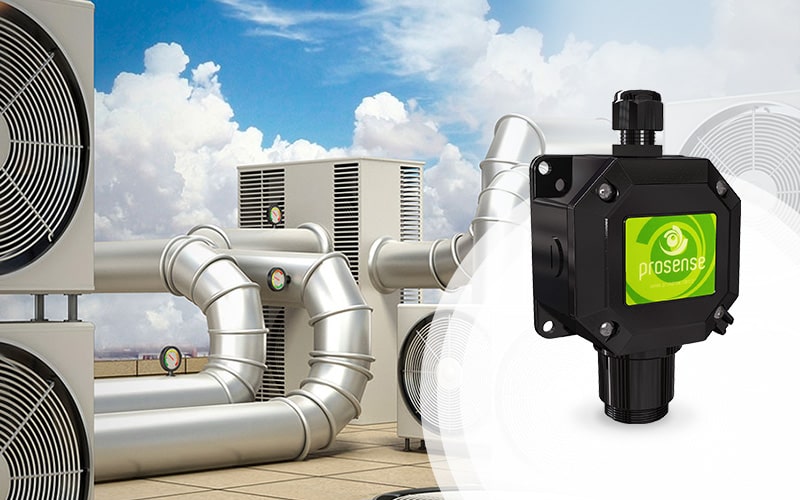
HVAC-Refrigerant
CO2, O2, NH3, and Freon detectors
Cooling is a process that uses a heat pump and working fluid to lower the temperature of the product, process, and space. Ozone was used in various working fluids until it was banned for its harmful effects. These working fluids are also known as CFC (Choloro Fluoro Carbons). After CFCs were banned, HCFCs, HFCs, and PFCs began to be used in applications, but new regulations have been created in recent years. The main reasons for these regulations were to limit the effects of gases on global warming and to quickly detect gas leaks in cooling systems.
In addition, there are other gases such as Ammonia and CO2 that can cause health problems in refrigeration plants. Therefore, gas detection systems are essential equipment in refrigeration applications to protect people and the environment.
Most people know Freon as a refrigerant used for home and industrial refrigeration equipment and air conditioners. But few people know about the effect of freon on the human body, how to recognize it by smelling it, and whether it is possible to poison with freon.
The saturated hydrocarbon group, one of the varieties of methane and ethane compounds, is called freon, and they can contain a mixture of chlorine or bromine. Today, about 40 types of volatile liquids without odor and color are produced. Freon can be in the form of inert gas or it can be in a liquid form. A feature of the liquid form is its ability to combine with lubricants and organic solvents. Liquid freon is insoluble in water.
Today, freon is a necessary substance for refrigeration equipment and cooling systems of air conditioners. In addition, freon is widely used in other fields due to its properties: medicine, perfumery, the manufacture of tobacco products and the production of fire extinguishing agents, the chemical industry, agriculture.
Scientists are carefully investigating the destruction of the Earth's ozone layer by freons, but everyone agrees that they are safe for the atmosphere. The amount of refrigerant released into the air is negligible, so no environmental hazards have yet been identified.
In most cases, freons are absolutely harmless substances that do not pose any danger to humans. However, if possible, it is better to avoid contact with these substances and not put your health at risk. In terms of toxic properties, freons are similar to other inert gases. With prolonged (more than 5 minutes) inhalation of these compounds, a negative effect on the body occurs.
The effect of freon on the human body is such that after returning to consciousness, a person will often observe a partial lack of memory within himself. Symptoms are particularly pronounced in children and the elderly whose body is debilitated or burdened by chronic diseases. A gas detection system is mandatory where such gases are used. Prosense can offer you economical solutions for these gases.
